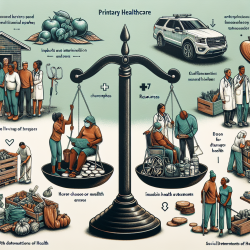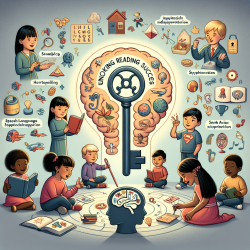The concept of medicalization has been a topic of extensive discussion in the healthcare community. It refers to the process by which non-medical issues are redefined and treated as medical problems. This transformation can have significant implications for both patients and healthcare providers. As practitioners, understanding the evolution and impact of medicalization is crucial for improving patient care and outcomes.
The Historical Context of Medicalization
The research article "Medicalization: A Historical Perspective" by Birrer and Tokuda provides a comprehensive overview of how medicalization has evolved over time. Historically, many conditions considered social or psychological phenomena have been redefined as disease states. This shift has been driven by various factors, including societal wellness obsession, the influence of the pharmaceutical industry, statistical saturation, media portrayal, and litigation.
Key Factors Driving Medicalization
- Wellness Obsession: The societal pressure to achieve perfect health often leads to the medicalization of normal human conditions that deviate from perceived norms.
- Pharmaceutical Industry: The industry plays a significant role in promoting medicalized conditions by funding research that supports the use of medications for these conditions.
- Statistical Saturation: The complexity of statistical analysis can sometimes be manipulated to support the existence of new medical conditions.
- Media and Internet: The portrayal of health issues in media can influence public perception and contribute to medicalization.
- Litigation: Legal actions related to loosely defined disorders can further entrench medicalized conditions within healthcare systems.
Practical Steps for Practitioners
The article suggests several steps practitioners can take to facilitate demedicalization and improve patient care:
- Resolve Conflicts of Interest: Encourage transparency in research funding and publication processes to reduce the influence of vested interests.
- Create Neutral Regulatory Bodies: Establish independent organizations to oversee research proposals without industry bias.
- Promote Public Education: Educate patients on wellness, sickness, and acceptance of physiological limitations through credible physician leaders.
- Demedicalize Aging and Normal Variations: Recognize aging as a natural process rather than a disease, and appreciate individual differences in social skills and intelligence as normal variations.
The Role of Cognitive Behavioral Therapy
Cognitive Behavioral Therapy (CBT) is highlighted as an effective non-medical intervention for improving patient outcomes. By incorporating CBT into practice, practitioners can address underlying psychological issues without resorting to unnecessary medication. This approach not only enhances patient well-being but also aligns with efforts to demedicalize certain conditions.
The journey towards understanding and addressing medicalization is ongoing. By staying informed and adopting evidence-based practices, practitioners can contribute to a more balanced approach to healthcare that prioritizes patient well-being over unnecessary medical interventions.










